How to Get Medical Exemption for Window Tint in South Carolina in 2024
Just as you’re pondering over the South Carolina sun glaring in through your car windows, you stumble upon the idea of getting a medical exemption for window tint. But how do you go about it? Well, it’s not as daunting as it may seem. It begins with understanding the specific medical conditions that qualify for this exemption and then having your physician sign a statement. But, there’s a twist – not all medical conditions are exempted, and the regulations may not be universally known. So, ready to navigate through this maze?
The information on myeyerx.net isn’t legal advice; consider it a starting point. Always verify with local and state authorities, as the final decision rests with you. We are not lawyers. For specific legal guidance, we can refer you to legal experts. Remember, knowledge of both state and local laws is essential, and even law enforcement might not be fully updated. We aim for accuracy but advise double-checking for the latest regulations.
Key Takeaways
Key Takeaways
Key Takeaways
- Understand South Carolina’s tint laws for road safety and visibility, allowing only 27.5% VLT on side windows and a 4-inch strip on the windshield.
- Medical conditions like Lupus, Cockayne Syndrome, etc., qualify for medical tint exemption, requiring a physician’s statement detailing the necessary light transmission percentage.
- Have a detailed conversation with your doctor about your light sensitivity, and request a signed statement specifying the required tint percentage.
- Medical window tints in South Carolina should comply with the 20% to 32% VLT range as per the physician’s statement.
Need Help? Our Doctors Are Here For You!
MyEyeRx was established with the objective of simplifying the complex landscape of state regulations pertaining to legal medical exemptions for window tinting. For individuals seeking to navigate these regulations without resorting to a do-it-yourself approach, we offer a streamlined solution. Our team includes qualified medical professionals who are available to conduct consultations via Zoom. These sessions are designed to assess your eligibility for a medical exemption, ensuring a personalized and efficient process for acquiring the necessary documentation.
Understanding South Carolina Tint Laws
To navigate South Carolina’s tint laws, it’s essential to understand that your vehicle’s front and rear side windows must allow at least 27.5% of light to pass through. This is known as Visible Light Transmission (VLT). South Carolina maintains this requirement for both front and rear windows to ensure safety and visibility on the road.
Moreover, you’re allowed a strip of tint up to 4 inches wide on your vehicle’s windshield, but reflective metallic films are a no-go. This is because such films can potentially interfere with a driver’s vision, posing a safety risk.
Now, let’s talk about medical exemptions. If you have certain health issues exacerbated by UV rays, you might qualify for a medical exemption to the usual tint laws in South Carolina. This Legal Tint exemption allows you to have darker window tint than typically permitted. It’s a crucial provision, especially if you’re sensitive to sunlight due to specific medical conditions.
In essence, South Carolina’s tint laws are designed to balance road safety with the health needs of drivers. Understanding these laws can help you drive legally and comfortably in South Carolina, even with a medical tint.
Qualifying Conditions for Medical Tints
While understanding South Carolina’s tint laws is crucial, it’s equally important to know which medical conditions may qualify you for a tint exemption. Several medical conditions may grant you a window tint waiver in South Carolina. These conditions are primarily those that increase sensitivity to UV radiation, leading to skin rashes or sun allergies.
Here are the possible qualifying conditions for medical window tints:
- Lupus: A chronic autoimmune disease that heightens sensitivity to the sun.
- Cockayne Syndrome and Bloom Syndrome: Rare genetic disorders that cause photosensitivity and neurological dysfunctions.
- Solar Urticaria: A condition that induces hives when skin is exposed to sunlight.
- Erythropoietic Protoporphyria and Albinism: These conditions increase skin’s vulnerability to sunlight, causing burns or rashes.
For medical authorization, a signed physician’s statement is required, stating the light transmission percentage necessary for your condition. Typically, tints for medical conditions range between 20-32% VLT. This range provides adequate protection from sunlight without compromising visibility. Remember, a window tint waiver can help you comply with South Carolina’s tint laws while addressing your medical needs.
Conversing With Your Doctor About Tints
Before you apply for a medical exemption for window tints in South Carolina, it’s crucial to have an open conversation with your doctor about your condition and the benefits these tints can offer. Explain your specific medical condition in detail and how window tints can alleviate your symptoms. Discuss your sensitivity to light and UV radiation, and how it affects your daily life.
To help guide your discussion, consider using the table below:
Discussion Point | Details | Why it’s Important |
Medical Condition | Describe your condition | To establish a medical necessity for window tints |
Sensitivity to Light/UV Radiation | Explain how this impacts you | To justify the specific tint percentage |
Tint Percentage | Indicate the percentage needed | To ensure your doctor includes this in their statement |
Physician’s Statement | Request a signed statement | Needed for the medical exemption application |
It’s essential your doctor includes all relevant details in the signed physician’s statement. This will support your medical exemption application. By being thorough and detailed in your conversation, you’re more likely to get the exemption you need to make your daily life more comfortable.
Percentage of Medical Tint Allowed
In South Carolina, you’re typically allowed to have medical window tints between 20% and 32% VLT, depending on your specific medical needs. SOUTH CAROLINA RULES state that tints below 20% VLT are not valid and may require referral to the Medical Review Unit for review.
The percentage of light transmission or VLT in your medical window tints is determined by your physician’s statement. So, it’s crucial to have a clear medical authorization from your doctor.
Here’s a quick rundown of the important steps to follow:
- Obtain a physician’s statement detailing your medical need for window tint.
- Ensure your tint falls between the 20-32% VLT range as per South Carolina rules.
- Be prepared to present your medical authorization if questioned about your window tint.
- Consider investing in high-quality tinting products like Rvinyl’s pre-cut window tint kits which come with a three-year warranty.

Don't want the hassle? Let us take care of your exemption for you!
MyEyeRx.net is here to help you streamlines the process of obtaining a medical exemption for window tint online. Explore our services to easily transform your window tint from non-compliant to legally approved!
Because of the differences in each of the 50 states, we’ve crafted distinct guides for securing window tint medical exemptions for each of the individual states.

Toriano (Tory) Dewberry
Become one of the many satisfied clients Toriano has assisted in obtaining a medical exemption without stepping out of their homes. Click the button below to begin and discover if you're eligible for a medical exemption.

Toriano (Tory) Dewberry
Become one of the many satisfied clients Toriano has assisted in obtaining a medical exemption without stepping out of their homes. Click the button below to begin and discover if you're eligible for a medical exemption.
Frequently Asked Questions (FAQ'S)
What Medical Conditions Qualify for Window Tint in Sc?
You’re inquiring about medical conditions that qualify for window tint in South Carolina. Conditions like Lupus, Solar Urticaria, and Albinism might be eligible due to skin sensitivity concerns. Eye condition exceptions may include cases of Xeroderma Pigmentosum. For dermatological necessities, Cockayne Syndrome and Bloom Syndrome qualify. Migraine relief options, autoimmune disease accommodations, tinting for allergies, and melanoma protection measures are also considered. You’d need a physician’s statement specifying your condition for the tint exemptions process.
What Are the Tint Laws for 2023 in South Carolina?
In 2023, South Carolina’s tint laws require your car’s front and back side windows to allow 27% visible light transmission. Your front side windows can’t reflect more than 20%. Rear side and back windows must let in at least 32% light. Non-reflective tint is mandatory on all windows. It’s crucial you understand these specifics for compliance. Remember, these regulations may impact drivers, tint installation businesses, and law enforcement alike.
What Is the Darkest Legal Tint in Sc?
In South Carolina, the darkest legal tint for your passenger vehicle’s front and back side windows is 27% VLT. Remember, there’re strict tint regulations, and illegal penalties can be hefty. While tinting costs may vary, it’s worth it for the privacy, safety, and UV protection benefits. However, installation and maintenance are key. If you’re considering darker tints, consult with professionals about the enforcement methods and potential medical exemptions.
How Do I Get Medical Exemption for Window Tint in Nc?
To get a medical exemption for window tint in North Carolina, you’ll need a physician’s statement detailing your dermatological need or eye sensitivity issue. Comply with NC Tint Regulations, and understand the NC Tinting Process. The benefits of window tinting can be great, but be aware of potential Tint Exemption Challenges. Familiarize yourself with the North Carolina Tint Laws and Application Process Details to avoid legal ramifications.

MyeyeRx.net
Ensuring your tint is not just about style, but legality and safety.
Let us guide you through the maze of state regulations to legal clarity.

Conclusion
So, you’ve made it through the process of getting a medical exemption for window tint in South Carolina. Isn’t it interesting that the percentage of light transmission through your tint is actually determined by your doctor’s statement? Remember to always keep your paperwork handy, just in case. Here’s to enjoying your rides with a little more comfort and a lot less glare!
Looking to find a Reputable Window Tint Company In South Carolina?
Checkout Tintingnearme.com to Find A Local Tint Shop
After learning about window tint laws, the next step is to find a trusted local window tinting shop. Tinting Near Me offers a selection of reputable shops knowledgeable in both quality tinting and legal standards, including medical exemptions.
Choose a shop from their list for expert service that meets legal requirements and enhances your vehicle’s compliance and protection.


